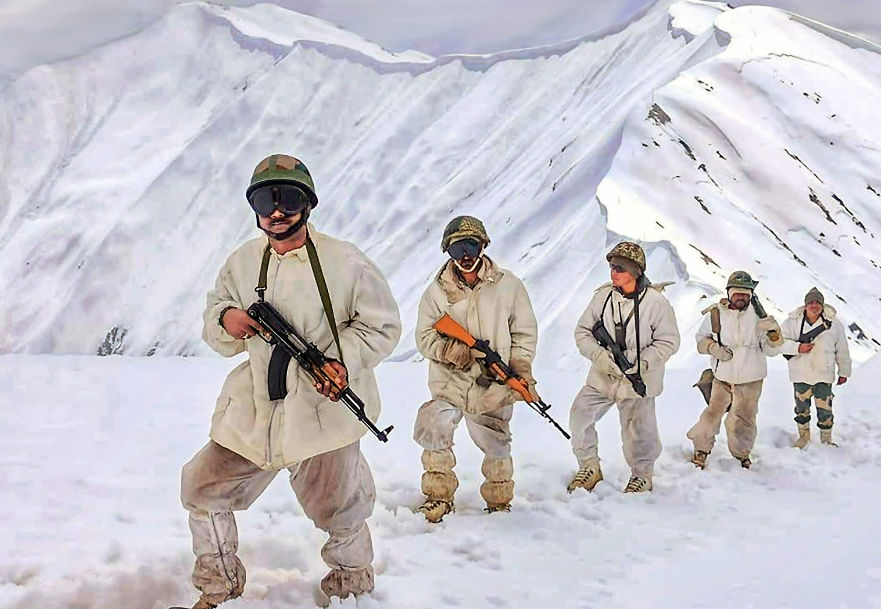
SOURCE: Tribune News Service
With additional troops to be positioned along the Line of Actual Control (LAC) in Ladakh during winter, the Army is procuring world-class snow boots, gloves, layered jackets, trousers and sleeping bags.
New sleeping habitat like arctic tents and special high-nutrient diet are to be provided. It is the first time that so many troops will be stationed during winter in eastern Ladakh along the 826-km LAC. Under normal circumstances, troop levels are no more than two brigades (around 10,000). Heated habitat with bunker-type beds already exists to house these many troops.
This year, the challenge will be the additional 30,000 troops who along with equipment have been stationed since May this year to ward off any misadventure by China.
Clothing and boots will be in multiple pairs as they tend to get wet in the snow. Just the clothing and gear to tackle the cold — night time temperatures are expected to be minus 30°C in peak winter —would cost more than Rs 1 lakh for each soldier, sources said.
Normally, patrolling is curtailed in winter. But this time, it is expected to be different as the People’s Liberation Army (PLA) is stationed just across the LAC.
The winter will set in in the first week of September when night temperatures dip below the freezing point. The entire area is above 14,000 feet and some of the mountain passes to be guarded are in excess of 17,000 feet.
The other task is to feed the troops as low oxygen availability in tree-less eastern Ladakh, coupled with extreme cold, low humidity and intense solar radiation, throws up a challenge. The calorie intake has been calculated as the per Defence Institute of Physiology and Allied Sciences study. The energy requirements in high altitude (over 12,000 feet) vary between 4,270 and 4,550 calories per day per person.
Then there is a requirement of nutrients as the low availability of oxygen in tree-less eastern Ladakh coupled with extreme cold, low humidity and intense solar radiation throw up a challenge. Physical activity like patrolling and the weight of cold protective clothing coupled with a loss of appetite leads can lead to weight loss and decreased performance.
The ration list allows the battalion commander to get what his troops may like to eat as culinary tastes vary across India. Troops operating in high altitude area suffer from anorexia, says the DIPAS study. There will be an increased supply of fresh vegetables, fruits and even chocolates, energy bars etc and which will be supplied by air from Chandigarh, the logistics base for Ladakh.






